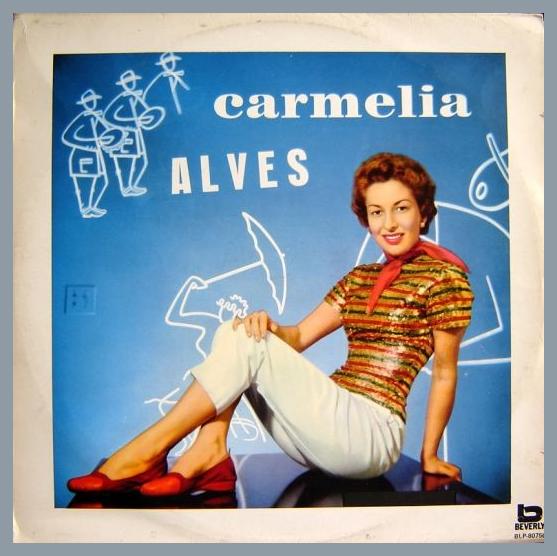 Carmélia Alves
Carmélia Alves
Carmélia Alves: A Songbird's Journey Amidst Challenges and Controversies
In the vibrant musical landscape of Brazil, Carmélia Alves emerged as a vibrant songstress with an ethereal voice and a captivating stage presence. Her signature song, "Sabiá Lá Na Gaiola," captured the hearts of countless listeners, propelling her to fame and acclaim.
Early Life and Influences:
Carmélia Alves was born in the humble town of Maranguape, Ceará. From a tender age, she was drawn to the rhythms of traditional Northeastern Brazilian music, particularly the melancholic melodies of forró and baião. Inspired by the likes of Luiz Gonzaga and Jackson do Pandeiro, Alves honed her vocal skills at local festivals and gatherings.
Musical Breakthrough:
In the early 1970s, Alves' talent caught the attention of renowned record producer Guto Graça Mello. Under his guidance, she recorded her debut album, "Carmélia Alves." The album featured "Sabiá Lá Na Gaiola," a haunting ballad that became an instant hit. The song's poignant lyrics and Alves's ethereal vocals resonated deeply with audiences, propelling her to stardom.
Controversies and Challenges:
Despite her musical success, Alves faced her fair share of controversies and challenges. Her outspoken nature and advocacy for social justice sometimes drew criticism from conservative sectors. Additionally, her personal life became fodder for sensationalistic media reports, which at times overshadowed her artistic achievements.
Discography:
Throughout her illustrious career, Alves released numerous albums, each showcasing her eclectic musical style. Some of her most notable recordings include:
* Carmélia Alves (1972)
* Sabiá Lá Na Gaiola (1973)
* Nordeste Só (1975)
* Coração Nordestino (1979)
* Forró de Carmélia (1983)
Members:
Carmélia Alves' band underwent several lineup changes over the years. However, some of its most prominent members included:
* Carmélia Alves: Vocals
* Zé Ramalho: Guitar
* João do Vale: Accordion
* Flávio José: Bass
* Ivanildo: Drums
Legacy:
Carmélia Alves' contributions to Brazilian music are undeniable. Her unique blend of traditional and contemporary influences has left an enduring mark on the genre. Her songs continue to inspire and captivate audiences, while her fearless spirit and activism serve as a testament to the power of music to transcend boundaries and effect change.
In the vibrant musical landscape of Brazil, Carmélia Alves emerged as a vibrant songstress with an ethereal voice and a captivating stage presence. Her signature song, "Sabiá Lá Na Gaiola," captured the hearts of countless listeners, propelling her to fame and acclaim.
Early Life and Influences:
Carmélia Alves was born in the humble town of Maranguape, Ceará. From a tender age, she was drawn to the rhythms of traditional Northeastern Brazilian music, particularly the melancholic melodies of forró and baião. Inspired by the likes of Luiz Gonzaga and Jackson do Pandeiro, Alves honed her vocal skills at local festivals and gatherings.
Musical Breakthrough:
In the early 1970s, Alves' talent caught the attention of renowned record producer Guto Graça Mello. Under his guidance, she recorded her debut album, "Carmélia Alves." The album featured "Sabiá Lá Na Gaiola," a haunting ballad that became an instant hit. The song's poignant lyrics and Alves's ethereal vocals resonated deeply with audiences, propelling her to stardom.
Controversies and Challenges:
Despite her musical success, Alves faced her fair share of controversies and challenges. Her outspoken nature and advocacy for social justice sometimes drew criticism from conservative sectors. Additionally, her personal life became fodder for sensationalistic media reports, which at times overshadowed her artistic achievements.
Discography:
Throughout her illustrious career, Alves released numerous albums, each showcasing her eclectic musical style. Some of her most notable recordings include:
* Carmélia Alves (1972)
* Sabiá Lá Na Gaiola (1973)
* Nordeste Só (1975)
* Coração Nordestino (1979)
* Forró de Carmélia (1983)
Members:
Carmélia Alves' band underwent several lineup changes over the years. However, some of its most prominent members included:
* Carmélia Alves: Vocals
* Zé Ramalho: Guitar
* João do Vale: Accordion
* Flávio José: Bass
* Ivanildo: Drums
Legacy:
Carmélia Alves' contributions to Brazilian music are undeniable. Her unique blend of traditional and contemporary influences has left an enduring mark on the genre. Her songs continue to inspire and captivate audiences, while her fearless spirit and activism serve as a testament to the power of music to transcend boundaries and effect change.